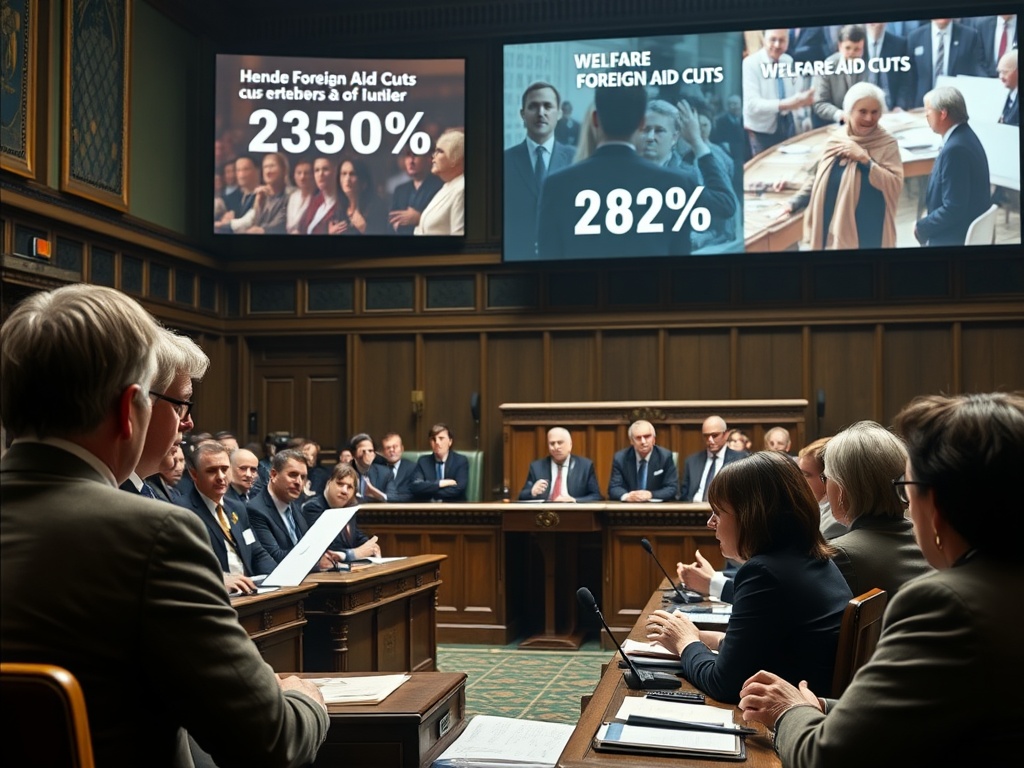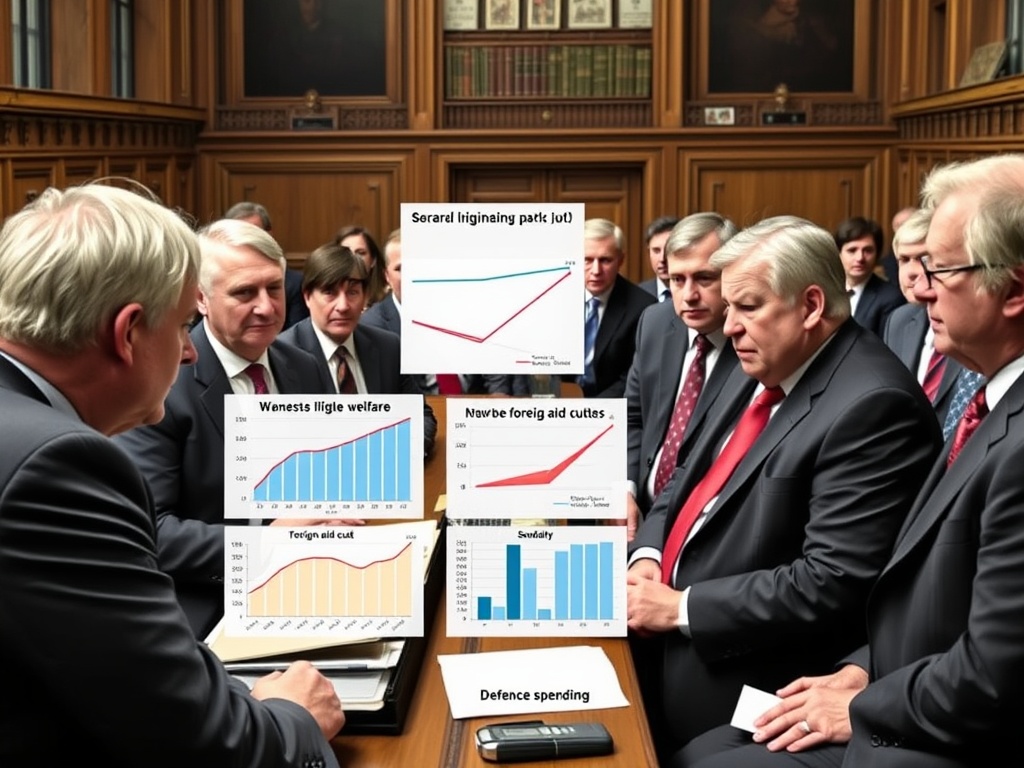Labour MPs Advocate Cuts in Welfare and Foreign Aid to Boost Defence Spending

Labour Members of Parliament (MPs) have conveyed to The i Paper that significant reductions in welfare spending and foreign aid may be necessary to accommodate a substantial rise in defence expenditure. This shift is driven by growing concerns that Europe can no longer rely solely on American protection for its security needs, prompting calls for increased military funding across the continent.
This development comes as Sir Keir Starmer is set to embark on a pivotal trip to Washington DC, where he will engage with US President Donald Trump on issues surrounding Ukraine this Thursday. Labour has already pledged to escalate defence spending from the current rate of approximately 2.3% of Gross Domestic Product (GDP) to 2.5% by the year 2030.
However, with President Trump insisting that European nations increase their military investments and the United States indicating a shift away from prioritizing European security, Starmer is facing mounting pressure to expedite these changes. During a speech in Glasgow, Starmer acknowledged Trump’s assertion that “we Europeans – including the United Kingdom – must take greater responsibility for our defence and security.”
Labour MPs have largely concurred that any increase in military funding will necessitate cuts across various government departments, while prioritizing essential sectors like the National Health Service (NHS). One Labour MP remarked, “There won’t be a single solution that draws from just one budget. We can expect to see minor savings spread across a multitude of areas.”
Luke Akehurst, the MP for North Durham, added, “Our foremost duty as a government – regardless of party affiliation – is to protect our citizens and safeguard national interests. This means we will need to identify additional savings from elsewhere to fulfill our commitments to defence spending.”
Contemplating Welfare and Aid Cuts
One Labour MP indicated that potential savings might come from “unprotected” departments beyond health and education, potentially involving reductions in welfare expenses by facilitating a transition for individuals from benefits to employment. Another MP echoed this sentiment, asserting that “it is already clear that welfare spending requires urgent reform and significant reduction.” This MP also mentioned the idea of reallocating international aid budgets to align with foreign and defence priorities.
The Conservative Party expressed support on Sunday for the idea of reallocating funds from welfare and aid budgets towards defence initiatives. One Labour MP characterized the redirection of aid funds to bolster defence as an “excellent idea.” They stated, “Every penny spent overseas should be driven by national security considerations. Although some may still find their way into traditional aid programs, the focus should shift towards enhancing our military capabilities rather than poverty alleviation efforts.”
Yet, not all Labour MPs agree with the notion of cutting aid. One MP warned, “Suggesting reductions in overseas aid would be counterproductive. Why would we cease initiatives that enhance soft power and diplomacy, potentially averting conflicts, in order to fund defence?” Another backbencher cautioned against alienating the middle ground within the Parliamentary Labour Party, stating, “If you want to upset our members, suggesting we need to bolster military spending at the expense of starving children in Africa would be a surefire way to do it.”
Nevertheless, one MP supporting the redirection of funds from the aid budget expressed optimism about garnering support within the Parliamentary Labour Party. “Aid is undeniably a touchy subject for many, but many issues are sensitive. The PLP will come around because it’s evident that Britain must increase its defence spending in the current global landscape. In a worst-case scenario, we might even gain backing from the Conservatives.”
Preparing for the Meeting with Trump
In preparation for Thursday’s meeting, Starmer and his advisors have reportedly engaged in strategic discussions, aiming to navigate the complexities of Trump’s recent criticisms directed at Ukraine’s President Volodymyr Zelensky and other European leaders. Over the weekend, Starmer affirmed that Trump was “correct” in urging an increase in European defence spending, hoping that presenting the UK’s plans to reach 2.5% and eventually aim for 3% might facilitate smoother negotiations regarding the US’s role in ensuring Ukraine’s stability.
Education Secretary Bridget Phillipson emphasized the UK’s commitment to significantly boost its defence spending, moving beyond the current 2.3% of GDP and encouraging allied nations to do the same. When questioned by Sky News about whether the Prime Minister would assure Trump of increased spending during their upcoming meeting, Phillipson remarked, “Let’s be clear, reaching 2.5% is an ambitious target. We are determined to achieve this, but it must be viewed within the context of public finances, which have been severely compromised by the Conservatives – leaving behind a £22 billion deficit and no credible plan to address this challenge.”
In an interview with Times Radio, she suggested that the UK will ultimately need to surpass the 2.5% target, acknowledging that “it is not sufficient, and we recognize the need to go further, as do our allies, to ensure we take every necessary step to safeguard our nation.”
Downing Street has been contacted for comments regarding these developments.




